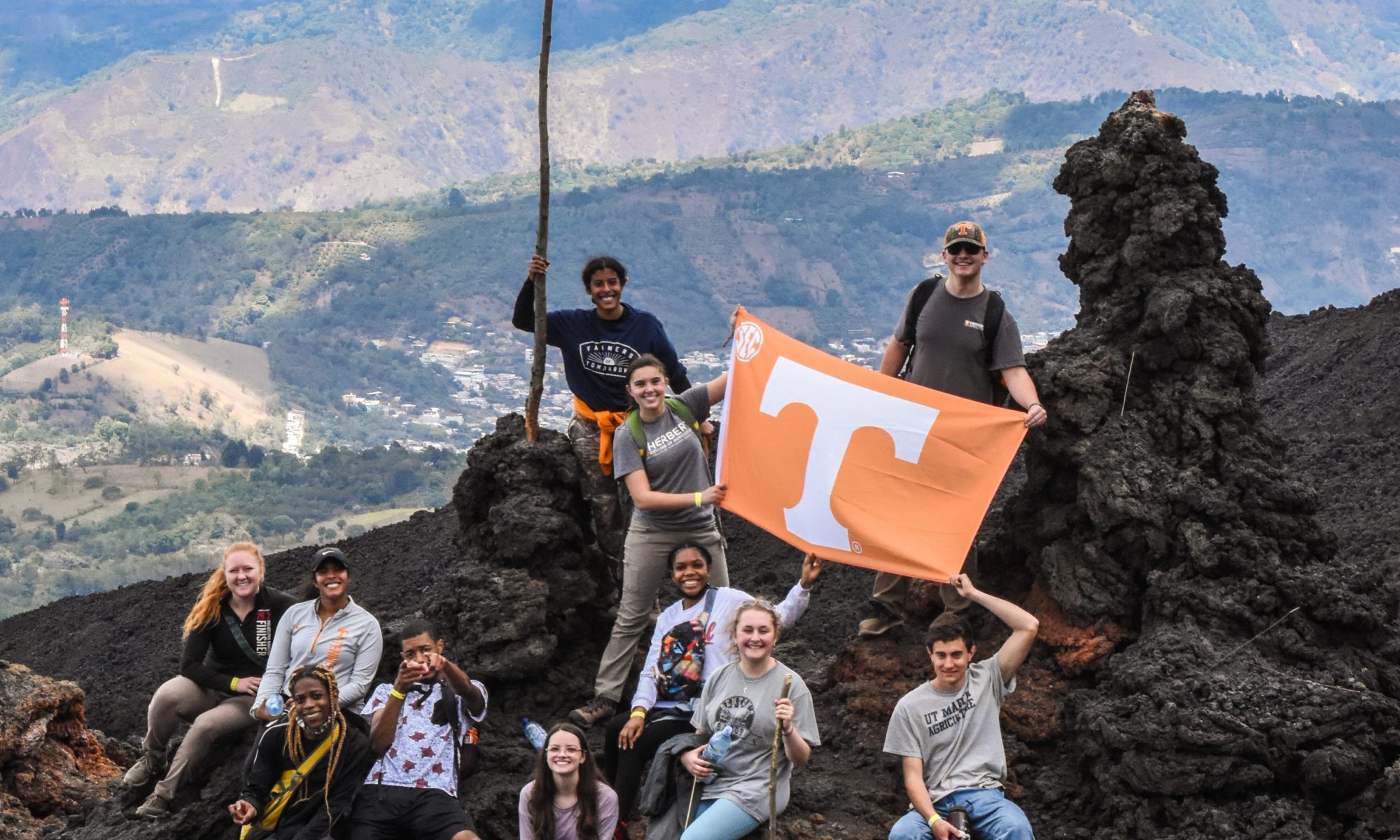
As part of Herbert’s efforts to provide opportunities for students to engage in the world, there are many chances to travel abroad. One example is a course that takes students to see agricultural and environmental challenges in Guatemala. While reflecting on the course and all that the group had done, Matthew Barnicki, a senior studying forestry and environmental soil science, decided, “My favorite experience was kayaking amongst the mangrove trees, but where I probably learned the most was at the macadamia nut farm.” Legna Soto, a junior in agricultural leadership agrees, “I really liked it there, too. Though I did enjoy seeing the coffee farm and getting to make chocolate from the cacao seed, I believe my favorite part of the whole experience was at the macadamia farm.” Various producers welcome UT students into their operations to show them what agriculture is like in Guatemala.
This week-long field trip is part of a Herbert course, International Experience in Agriculture and Natural Resources, led through the Smith Center for International Sustainable Agriculture, which offers students the chance to engage with local partners and gain an overview of the many agricultural and natural resource issues facing rural communities in Guatemala. As the students work with diverse communities on local initiatives, from the volcanic slopes down to the coastal plains of mangrove forests, they not only learn about food production, but they also see how social and economic differences are compounded by the effects of climate change, particularly water availability. The course is designed to provide the opportunity for students to explore sustainable agricultural development and natural resource use. It also provides students with a chance to see a variety of ecosystems and agricultural production systems across a range of crops, from vegetables in the highlands, to coffee, cacao, sugarcane, and even salt down on the coast.
“It’s a pretty spectacular learning environment when you get to see firsthand soil being made at the tops of volcanoes, and then see how that influences the rich agricultural lands below, where a huge diversity of foods is grown”, says Dave Ader, faculty leader for this course. This kind of experiential learning for all Herbert students is the goal. “Overall, it was fascinating to see Central America for the first time–particularly the great variety of native vegetation and farming of various crops at different scales,” adds Barnicki. It is with support from generous donors that the Herbert College of Agriculture is able to offer these experiences. “Our group really made the difference in having a successful trip,” says Damon Conway, a junior in the Department of Forestry, Wildlife and Fisheries. “We all come from different backgrounds and have different perspectives, which makes it more fun.” Adriana Johnson, a freshman studying wildlife health, agrees, “We all come from different situations, so how you see the world depends on your background.” Although from a variety of backgrounds, the students agree that seeing the challenges around the world can be a humbling experience that helps us all understand each other better. Taking students out of their comfort zones so they can learn about the wider world and how we are all connected will help them find Real. Life. Solutions. for our planet.
